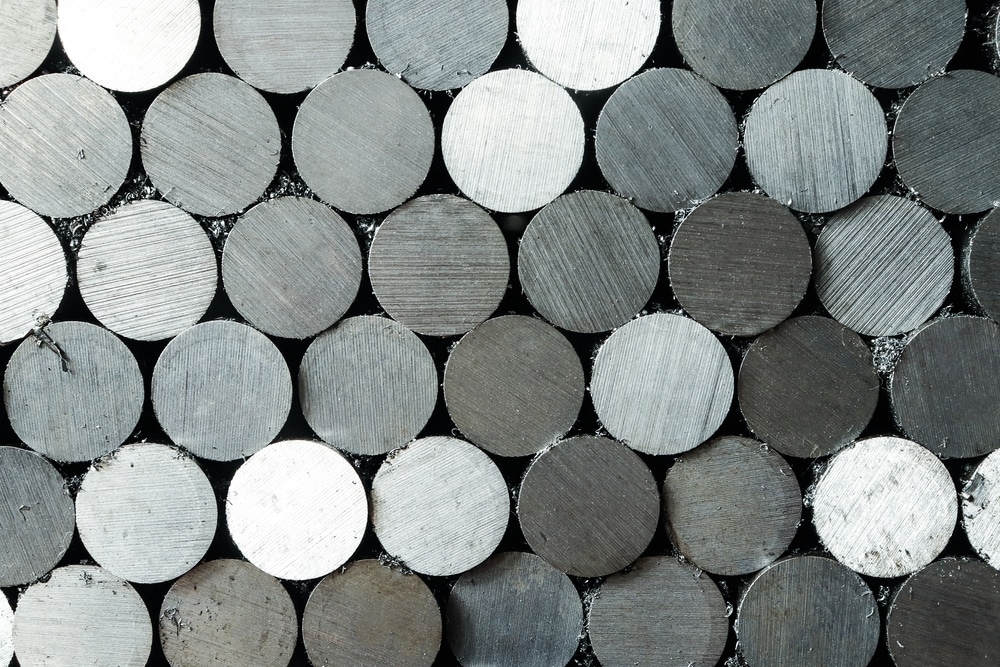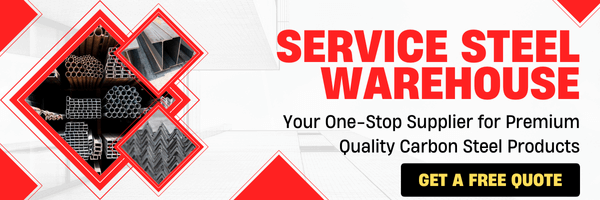Steel Bars Explained
January 18, 2023 | Categorized in: Types

With their diversity of shapes, steel bars can appear in many places throughout your day-to-day life — and yet it can be easy to overlook their effectiveness. Because of this, we want to take a look at how steel bars are actually defined, the various shapes available, where you might see them pop up (or want to use them), and more.
What is a steel bar?
So let’s start with the basics. A steel bar is a solid rod that can be a range of shapes. While their shapes have a lot of crossover with steel tubing, steel bars aren’t hollow and have additional variations that can be used for even more niche applications.
Types of steel bars
When it comes to steel bar shapes, there are three primary shapes that mirror tubing, and three additional shapes or variations that are unique to bars. They are:
- Round bars – these products are simple, circular rods that are incredibly common across many industries.
- Square bars – as the name suggests, these have a square cross-section and are also one of the most frequently-used steel shapes.
- Flat bars – typically less than an inch thick, these are rectangular, flat products with two different measured dimensions in addition to length.
- Hexagonal bars – the first of the less common shapes, hexagonal bars are reminiscent of a pencil with their six sides.
- Twisted bars – used primarily for aesthetic purposes, these are square (or sometimes flat) bars that have been twisted to create a rope-like appearance with diagonal ridges.
- Rebar – the final type is actually rebar (short for reinforcing bar, also known as deformed bar), which is a round bar variation that usually has knurls running around its circumference.

Commons uses of steel bars
With so many different shapes, steel bars can be used in an almost limitless number of applications. However, common uses include structure roofs, bridges, fences, cement reinforcement, furniture, metal grating, railings, and more.
Rebar is the most common type when it comes to concrete reinforcement, and this is the shape’s primary function. Flats are commonly used for steel bar grates, while twisted or square bars are often made into ladders, fencing, or gates. In the automotive industry, round bars are used as axles, shafts, and more.
Steel bar sizes & measurements
Steel bars typically come in a variety of lengths, but the largest variation from product to product is in the measuring of the cross-section. Obviously this will depend heavily on the shape you’re looking at, but reading bar measurements is thankfully pretty straightforward.
You’ll usually see a single diameter measurement combined with a length for square, round, or hexagonal bars (although this is sometimes labeled “height” for hex bars). When it comes to flats, they’ll clearly mark a width and height, making it easy to figure out all the important dimensions of what you’re buying.
Are they hot rolled or cold rolled?
Steel bars can be purchased in both cold rolled and hot rolled options. As with other rolled products, hot rolled tends to be more economical and used for applications where tight tolerances aren’t necessary, while cold rolled is more precise but also more expensive.
Learn more about the differences between hot rolled and cold rolled steel here.
Get steel bars for your projects today
If you’re looking for a supplier for your project, Service Steel has a huge inventory of steel bars and other merchants like angles and UM plates. We can ship as soon as tomorrow, and always have our team standing by to help you. No matter what steel you need, we’ll make sure you get the highest quality and quickest delivery available. Speak to one of our sales representatives or request a free quote today!
